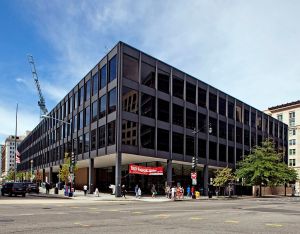
This website is a product of a year long collaboration between American University’s public history program and Shelter Housing and Respectful Change (SHARC). Graduate and undergraduate students in AU’s courses on oral history and local and community history have conducted eleven interviews with SHARC members and supporters. In the spring of 2013, SHARC members and the students in the local and community history course met regularly at the Martin Luther King Jr. branch of the D.C. public library to jointly conduct research, discuss findings, and develop themes that have shaped this web site. The goal of this site is to provide some historical insight into the present dilemmas faced by the residents of the Federal City Shelter. While there are no clear cut answers here, our hope is to provide information that can help lead to more effective engagement as the city contemplates the future of the building.
Special thanks to the SHARC members and supporters who contributed to this project, including Eric Sheptock, Alisa Hill, James Shabazz, Nkechi Feaster, Robert Warren, Terry Lewis, Valerie Williams, David Edwards, Chapman Todd, and Mark Anderson. The students who worked on the materials that have gone into this site include Alison Kootstra, Mary Bergman, StacieNicole Simmons, Anna Kaplan, Beth Geglia, Kevin Kunitake, Claire Davis, Nicole Wisler, Michael Donovan, Jordan Lyons, and Patricia Yacob. Also, we would like to thank the librarians and archivists at the Washingtoniana Collection at the DCPL, the Prints and Photographs division of the Library of Congress, and special collections at George Washington University who helped facilitate the research.
Please feel free to engage the material by leaving your comments on the pages throughout the site. Add your views on what you think should happen on Twitter using the hashtag #CCNV2016. If you have materials to add or corrections to make, you can contact the site administrator Dr. Daniel Kerr by filling out the form on the Tell Your Story page.